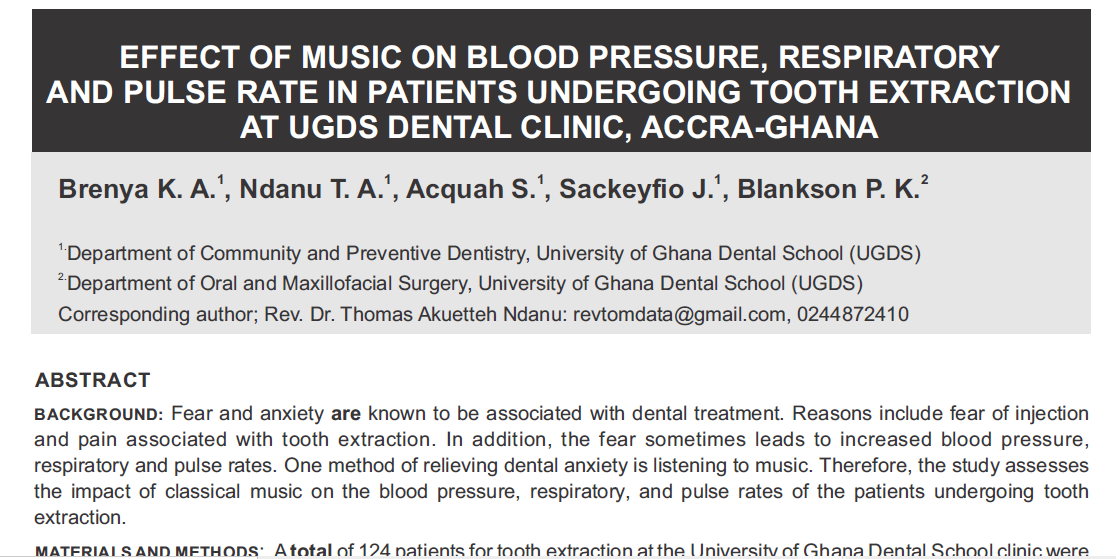EFFECT OF MUSIC ON BLOOD PRESSURE, RESPIRATORY AND PULSE RATE IN PATIENTS UNDERGOING TOOTH EXTRACTION AT UGDS DENTAL CLINIC, ACCRA-GHANA
Keywords:
Tooth extraction, blood pressure, respiratory and pulse rate, classical music interventionAbstract
BACKGROUND: Fear and anxiety are known to be associated with dental treatment. Reasons include fear of injection
and pain associated with tooth extraction. In addition, the fear sometimes leads to increased blood pressure,
respiratory and pulse rates. One method of relieving dental anxiety is listening to music. Therefore, the study assesses
the impact of classical music on the blood pressure, respiratory, and pulse rates of the patients undergoing tooth
extraction.
MATERIALS AND METHODS: A total of 124 patients for tooth extraction at the University of Ghana Dental School clinic were
randomly assigned to intervention and control groups. A revised modified dental anxiety scale assessed dental anxiety and
collected demographic data prior to the extraction. The intervention group(62) listened to classical music for 5 minutes, but
the control group(62) did not. Blood pressures, respiratory and pulses rates were taken before and after tooth extraction.
We then evaluated the impact of the intervention on the physiological changes.
RESULTS: There were 46.8% males and 53.2% females. The mean age was 46.2±18.0yrs. No significant differences were
observed in sex distribution and mean age between intervention and control groups. Overall dental anxiety prevalence
was 52(41.9%). The music group had significantly reduced mean systolic blood pressure by 8.8mmHg (p=0.001). The
respiratory rate was significantly lower for the music group (19.7±4.1) as compared to the control group (21.2±3.33),
p=0.023.
CONCLUSION: Classical music was associated with reducing systolic blood pressure and the respiratory rate, which are
some of the physiological indicators of dental anxiety.






